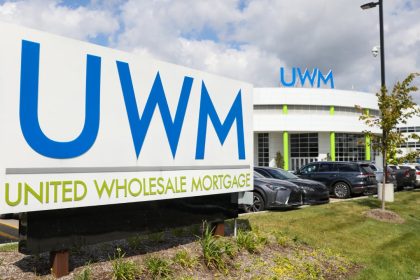Key takeaways
- Investing in real estate is generally considered a safe bet, but it’s not without its risks.
- Investor home purchases and house-flipping activity both slowed in 2024.
- As operating costs go up, landlords are seeing smaller net profits.
In these uncertain economic times, a tried-and-true investment like real estate might seem appealing. Buying an investment property is one of the more common ways to invest in real estate. Whether you plan to rent the place out or fix it up to sell for a quick profit, here are the latest investment and rental property statistics to help guide your choices.
Real estate investment statistics
- Investor home-purchasing activity has slowed recently. Redfin data shows that investors purchased 17.1% of the homes that sold in the final quarter of 2024, the lowest level for Q4 since 2020.
- The most popular housing type purchased by investors was single-family homes (69.4% share, per Redfin), followed by condos (17.5% share).
- The average down payment for purchasing an investment property was 27.4% in Q4 2024, per Realtor.com. That’s nearly double the average down payment for a residential purchase (14.4%).
- House-flipping activity also slowed in 2024, down 7.7% from 2023 according to ATTOM.
- ATTOM’s data shows that investors saw gross profits increase, though, from $67,846 in 2023 to $72,000 in 2024. The average return on investment was 29.6%.
Rental property statistics
- There are 19.3 million rental properties in the U.S., according to the Census Bureau. In total, there are 49.5 million rental units in the U.S.
- As of April 2025, Zillow data shows that the typical apartment rent was $1,858 per month. For single-family homes, that amount was much higher at $2,256.
- New apartment construction is on the rise, with the number of additions to the rental market surpassing 500,000 in 2024, according to RentCafe.
- The company’s most recent data showed that the top five most popular markets for apartment rentals were Washington, D.C., Cincinnati, Chicago, Kansas City and Atlanta.
- For rental-apartment owners, operating expenses rose by 7.1 percent in 2024, according to the Harvard University Joint Center for Housing Studies. This was largely due to a significant increase in owners’ insurance premiums.
How rental prices vary by state
Data from World Population Review shows that rent tends to be high in many of the same housing markets where home prices are notoriously high.
In 2025, the states with the most expensive average rent were:
- Massachusetts ($2,837)
- New York ($2,739)
- Hawaii ($2,668)
- California ($2,587)
- Washington, D.C. ($2,474)
And the states with the least expensive average rent were:
- Oklahoma ($1,035)
- North Dakota ($1,077)
- Arkansas ($1,093)
- South Dakota ($1,127)
- Iowa ($1,220)
Some states have seen a notable change in rental prices over the past year. According to a recent analysis of Zillow data by Construction Coverage, rent in both Montana and Idaho rose at a rate more than four times the national average between 2024 and 2025. Both states saw increases of more than 20 percent. By contrast, Rhode Island, Wyoming and South Dakota all saw large decreases in rent during the same time period.
Current investment property rates
Investors need to be aware of how much their investment will cost in terms of loan interest. Investment property loans generally have higher mortgage rates compared to loans for primary residences. Banks and other lenders charge more to compensate for the higher risk of non-owner-occupied property. The disparity between the two fluctuates, but there might be anywhere from half a percentage point to a full percentage point difference.
Is real estate a good investment?
There is some level of risk to any type of investment, especially in an economy as volatile as 2025’s has been so far. But real estate is widely considered one of the better bets.
Owning a residential property as an investment can deliver multiple benefits, says Mark Hamrick, senior economic analyst for Bankrate, including:
- Passive income
- Potential tax benefits from deducting mortgage interest and other costs
- Appreciation in the asset’s value
- Portfolio diversification
“Inflation protection is another potential benefit,” says Minette Schwartz, an agent with the Schwartz Team at Compass in Miami Beach. “Rent prices often increase with inflation, which means your rental income could rise over time, maintaining or even increasing your purchasing power.”
That said, investing in real estate also comes with drawbacks that can have a major impact on your returns if you’re not prepared. Make sure you’re ready for:
- Carrying costs: You’ll encounter maintenance costs and the potential for vacancies that are hard to fill. Experts recommend applying the 1 percent rule to protect yourself against unprofitability.
- Changes in the market: The housing market has been unpredictable lately, which makes investing in it unpredictable as well. “Market volatility is another factor that can affect the profitability of your investment,” says Schwartz. “Property values can fluctuate based on locale and broader economic conditions. For example, job losses in the area can reduce demand for rental properties, leading to lower rental rates or longer vacancy periods.”
- Longer selling timelines: If you need cash quickly, it also takes a lot longer to sell real estate than it does other investments, Hamrick says.
Bottom line
Real estate is generally considered a pretty safe investment, but it is by no means a cheap one. Investors looking to make money on a rental property or a house flip should be prepared and have a well-mapped plan for how they would both finance and use the asset, and how much revenue it might generate, before they buy.
Read the full article here
















